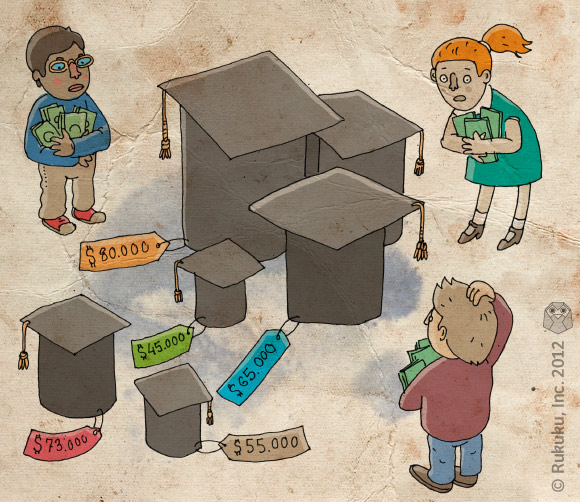So, you want to go to college. I don’t blame you: college is basically four years of fun (with a side of class for about three hours a day), and when you’re done, you get a big, lavishly framed, magical piece of paper that helps you make money. It’s like there are no downsides!
Well, actually, there is one. The average cost of a college education in the United States is currently about $140,000 for a private institution and $56,000 for a public one. This is quite a hefty price tag for a four year party and a piece of paper – and that’s before you pile on a generous smattering of extra tens of thousands for room, board, and books. Given that the median American household earns just under $45,000 per year, these numbers are very perplexing.
When I talk to people who attended college 40 or 50 years ago, I notice a common theme: many were able to pay for it themselves with part-time side jobs, like working at a restaurant or delivering newspapers. In 2012, the income from such employment would barely be enough to buy books for the semester, let alone cover tuition. The vast majority of today’s students are unable to pay for any kind of college education without sinking into the abyssal chasm of student loan debt.
What changed? Somehow, I doubt that part-time waiters in the old days got the 2012 equivalent of $30,000 a year. The culprit must be tuition.
Why is education so expensive, and how can technology help bring that cost down? This week we’ll be discussing this topic in depth and attempting to find some answers. Stay tuned, Rukuku readers!




